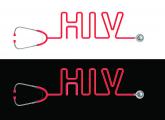Patients who received antiretroviral treatment (ART) on the day they underwent HIV testing were more likely to continue treatment and have a lower mortality rate, a study conducted in Port-au-Prince, Haiti, showed.
According to the World Health Organization, ART treatment is essential in stopping the spread of HIV; however, one-quarter to one-third of patients do not continue the treatment process after starting ART, the investigators reported.
Starting ART treatment the same day as HIV testing showed the potential to reduce this problem. “Our findings suggest that ART initiation as soon as possible after HIV testing may be beneficial for clinically stable patients,” wrote Serena Koenig, MD, of the department of infectious diseases at Brigham and Women’s Hospital, Boston, and her coinvestigators. “In resource-poor settings with fragile delivery systems, such as Haiti, the provision of immediate support by care providers at the time of HIV diagnosis can have both structural and individual impact.”
In a randomized, controlled study of 703 patients, 277 of 347 same-day ART patients (80%) retained care, and 10 (3%) died, compared with 256 of 356 patients (72%) in the standard care group, 20 (6%) of whom died (PLoS Med. 2017 Jul 25. doi: 10.1371/journal.pmed.1002357).
Retention of care was defined as attending one clinic visit between 12 months and 15 months after testing, the investigators reported.
The median age of participating patients was 37 years; the median CD4 count was 247 cells/mm3 in the standard care group and 249 cells/mm3 in the same-day group.
At the end of the study, the adjusted mortality risk among patients in the same-day ART group was less than half that of the standard care group (risk ratio, 0.43; P = .033).
Care retention might be related to a more positive mindset among those who start ART immediately after diagnosis, the investigators said.
“Making treatment initiation logistically easier for patients, we believe that same-day counseling and ART initiation increase the sense of hope, optimism, and overall connectedness to the health care system for patients, which have been shown to be important for retention,” Dr. Koenig and her colleagues wrote.
The findings update the 2016 World Health Organization standard guidelines for ART treatment, which report that there is not enough information to recommend same-day treatment. The study was limited by the single-center patient population. Patients also had lower than usual CD4 counts, which may have exaggerated successful results.
The National Institute of Allergy and Infectious Diseases funded the study. The investigators reported they had no relevant financial disclosures.
ezimmerman@frontlinemedcom.comOn Twitter @eaztweets
